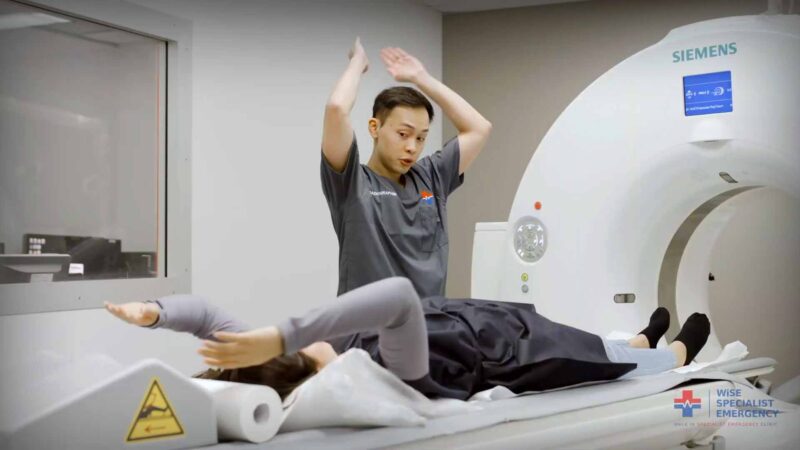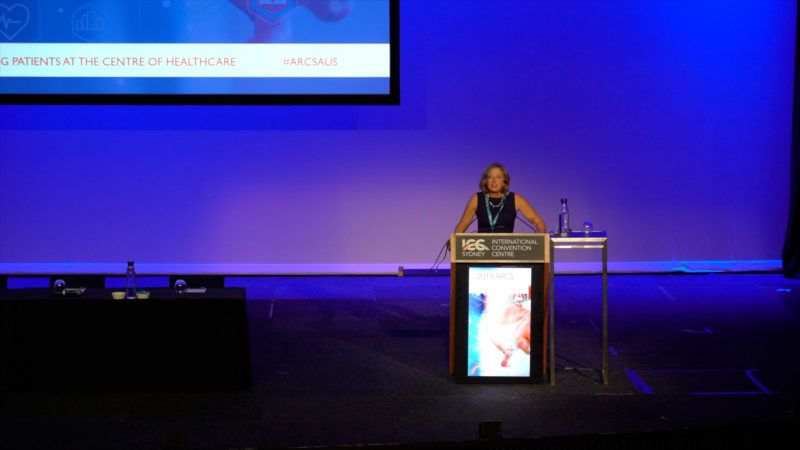CONGENITAL HYPOTHYROIDISM: AWARENESS, DIAGNOSIS AND TREATMENT IN PAEDIATRICS
People In Health Care
Associate Professor Michelle Jack, Paediatric Endocrinologist
Clinical Practice & Co-Lead Doctor of Medicine, Bond University, Queensland
Filmed Robina, Queensland | October 2024
Michelle Jack is Associate Professor of Clinical Practice, Faculty of Health Sciences & Medicine at Bond University, QLD, co-Head of Paediatrics and a Paediatric Endocrinologist at Lismore Base Hospital in NSW and Senior Staff Specialist, Paediatric Endocrinology, Northern New South Wales Local Health District.
Associate Professor Jack is a member of the ANZSPED Laboratory and Newborn Screening Sub-committee https://anzsped.org/subcommittees/lab-group/ and Thyroid working group https://anzsped.org/subcommittees/thyroid-working-group/.
Australian Health Journal spoke to Associate Professor Jack about congenital hypothyroidism and newborn screening and her concerns in the varying thresholds for across different states in Australia. Despite the existence of newborn screening programs since the 1970s, there is still controversy surrounding the appropriate screening levels. Congenital hypothyroidism, affecting about one in 3500 infants, can lead to severe intellectual and physical impairment if not diagnosed early. The condition is mainly caused by the thyroid gland’s failure to develop properly, resulting in insufficient thyroid hormone production.
The current challenge lies in setting the right screening thresholds to avoid false positive or missed diagnoses. Assoc Prof Jack highlights the need for standardisation in the approach to borderline thyroid abnormalities in children, as the wide variety of responses from paediatric endocrinologists indicates a lack of consensus. She emphasises the importance of conducting high-quality research to determine the optimal screening thresholds, considering both the impact on infants and their families and the healthcare system’s cost.
Associate Professor Jack is passionate about the health and wellbeing of children and adolescents, with diverse research areas including the impacts of family friendly workplace initiatives, screening and management of thyroid disorders in infants and children. She supports her First Nations colleagues on Indigenous-led research projects funded by the Medical Research Future Fund, aiming to improve the social and emotional wellbeing of First Nations Children. Through her clinical and academic roles, Michelle hopes to make a positive difference to the health and well-being of children and their families.
References on congenital hypothyroidism
ANZSPED website resources on congenital hypothyroidism
– https://anzsped.org/patient-resources/hormones-me-booklet-series/
– https://anzsped.org/patient-resources/anzsped-patient-flyers/)
Fifty years of newborn screening for congenital hypothyroidism: current status in Australasia and the case for harmonisation
You Might also like
-
Dental marketing insights from leading authority
Winning the Australian Dental Industry Award for Marketing has had a big impact to Dental Marketing Solutions. As Angus comments in closing, “Receiving the award is social proof to say, well, these guys must know something, because an independent body of their peers has assessed them and said”. He added, “Certainly it’s been good in terms of building our business.”
-
Specialist emergency care clinics in rollout
Unlike Emergency Departments that operate within public hospitals and some private hospitals, a Walk-in Specialist Emergency Clinic is located in the community and designed to provide comprehensive, coordinated acute care – from initial consultation and diagnostic services, to treatment and specialist referral if required – without the patient having to visit a hospital.
Australian Health Journal spoke to the visionary, founder and CEO behind this WiSE Specialist Emergency clinic, Dr Pankaj Arora.
-
ARCS Annual Conference 2019
Earlier this month, ARCS Australia held it’s Annual Conference at the International Convention Centre Sydney – ICC Sydney, with the theme of putting patients at the centre of healthcare. Uniquely, the conference included a number of patients who attended, presented or were referenced.



